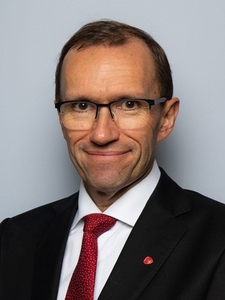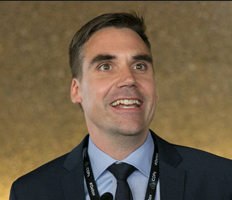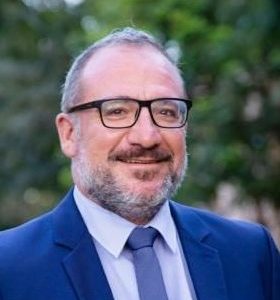Event Virtual
High-Level Briefing on the Second Segment of the 5th Session of the United Nations Environment Assembly | GENeva UNEA-5.2 Briefing

This briefing provided an update on preparations and the presidency priorities for the resumed fifth session of the UN Environment Assembly, which will take place from 28 February to 2 March 2022.
About UN Environment Assembly
The United Nations Environment Assembly is the world’s highest-level decision-making body on the environment. The fifth UN Environment Assembly (UNEA-5) will be the opportunity to strengthen international efforts to tackle the triple planetary crisis we are facing – climate change, nature loss & pollution. UNEA-5 is taking place in two-parts. A first online session took place in February 2021 (UNEA-5.1), and a resumed session will take place from 28 February to 2 March 2022 (UNEA-5.2).
The theme “Strengthening Actions for Nature to Achieve the Sustainable Development Goals” calls for strengthened action to protect and restore nature and the nature-based solutions to achieve the sustainable development goals in its three complementary dimensions (social, economic and environmental). Full of diversity and complexity, nature underpins our economies and our societies. However, humanity is destroying these life-giving services through over-exploitation, unchecked development and climate change. UNEA-5 emphasizes that collectively we have the knowledge, technology and the resources to protect and restore our natural world by making the transition to a nature-positive future that will benefit our health, our economies and our future.
About this Session
This online briefing provided an update on the UNEA-5 President’s priorities and preparations for the resumed Fifth Session of the United Nations Environment Assembly, taking place online and in Nairobi on 28 February – 2 March 2022.
Immediately after UNEA-5.2, the Assembly will hold a Special Session on 3 – 4 March 2022, which is devoted to the commemoration of the 50th anniversary of the creation of UN Environment Programme in 1972 (UNEP@50).
Beside this high-level briefing, a number of events are hosted by various actors in International Geneva and beyond in the run-up to UNEA-5. More information is available in our update Towards UNEA-5.2.
Speakers

H.E. Espen BARTH EIDE
President of UN Environment Assembly, Minister of Climate and Environment of Norway | Video message

Hans BRATTSKAR
Special envoy to the UNEA President | Ministry of Climate and Environment, Norway

Aline NSENGIMANA UMUTONI
Advisor Officer, Governing Affairs, UN Environment Programme

Felix WERTLI
Head, Global Affairs Section, International Affairs Division, Federal Office for the Environment, Switzerland

Wondy ASNAKE
Policy and Partnership Coordinator, Europe Office, UN Environment Programme
Summary
Welcome and Introduction | Bruno POZZI
The first segment of the 5th United Nations Environment Assembly (UNEA-5.1) focused on budgetary and administrative matters and the mid-term strategy (MTS), allowing the United Nations Environment Programme (UNEP) to visualize and concentrate on the most important aspects of the environment and the achievement of the Sustainable Development Goals (SDGs). This also led to the realization of what THE box we must be built on is: the environment. Through the MTS, Member States have positioned UNEP to deal with the triple planetary crisis we are witnessing: climate change; pollution, very central to UNEA-5.2; and the loss of biodiversity, reconnecting to the theme of the assembly.
It is important to host these events in Geneva before the event in Nairobi (28 February- 2 March 2022). What is decided in Nairobi as the leading positions on the environment needs Geneva’s echo chamber because those decisions have a global influence, directly impacting Geneva policy and decision-making.
UNEA-5 and the Presidency Priorities | H.E. Espen BARTH EIDE (Video)
On 28 February, we will gather in Nairobi for UNEA-5.2. This event will raise the attention of the whole world on the fact that it is time to act for nature. UNEP is the the global authority for the environment with programmes focusing on climate, nature, pollution, sustainable development and more. This year we celebrate the 50 years of the creation of UNEP.
This year, all these workstreams come together in global events. Glasgow was a climate summit that strongly emphasized the importance of nature. Kunming will host the biodiversity summit. UNEA-5.2 will have a strong focus on nature and pollution, and notably on plastic pollution and the need to move towards a global treaty on plastic litter. Plastic is a relatively young product, which became omnipresent only during the past decades. Now it is everywhere, dispersed in nature, in the ocean, visible and invisible. It is part of all ecosystems as it is eaten by fish then humans eat. It is a major challenge to global human health.
Nairobi is open to everyone thanks to its virtual option, and where everyone, as a member of a government, of an international organization, of an NGO, of a business or as a consumer can come together and show that it is time to act for nature.
UNEA-5 and the Presidency Priorities | Hans BRATTSKAR
This year is indeed a very special one. Marking fifty years from the first-ever UN conference on the environment, held in Stockholm in June 1972. After fifty years of work, we can be proud of the many accomplishments of UNEP. The 1987 Montreal Protocol and the Minamata Convention are just two examples of how the world has changed for better thanks to UNEP and UNEA.
These achievements should be of inspiration and act as an incentive to speed action today, in preparation for the future. We are about to witness a UNEA that could have historical importance. More than 150 United Nations Member States, 80 large private sector and civil society actors are now calling for the launch of a new global agreement on plastic pollution. A global legally-binding instrument addressing all sources of plastic pollution and promoting a lifecycle approach will be the most effective solution in the long run. An agreement will not solve everything, but its importance lies in the fact of bringing together all actors to find solutions to a problem that transcends boundaries in all parts of the environment.
Additionally, we are coming to the end of a long process to draft the Ministerial Declaration, conducted most openly and transparently possible, and involving various rounds of consultations with Member States and other stakeholders. After multiple drafts, a final one was achieved, making the case for dealing with plastic pollution, loss of biological diversity, the need for sustainable development to end poverty, on top of a strong recognition of the need to mobilize more means of implementation.
Moreover, Norway supports the proposal to strengthen the science-policy interface for chemicals, waste and pollution by establishing an intergovernmental panel. The third planetary crisis – pollution – clearly requiring broader action for which science is an essential foundation. Other resolutions proposed at UNEA-5.2 promote nature-based solutions, green economy, green recovery to build back better after the COVID-19 pandemic, better management of resources and addressing the environmental consequences of different activities at the intersection of the three global environmental crises we face today.
To conclude, the pandemic has shown both the possibilities and limitations of working online. After almost two years the global community will finally come together around tables to address the global environmental crisis we face today. The backing of every stakeholder to achieve a successful UNEA-5.2 is necessary as states cannot simply do this alone. As mentioned earlier, everyone from civil society, business, governments, online and in-person participants must come together and work for ambitious decisions.
Introduction to UNEA-5.2 | Aline NSENGIMANA UMUTONI
Due to the pandemic, Member States have decided to hold the event in two steps: the first one was held in 2021 and focused on administrative matters, while the resumed one we are preparing will take place from 28 February – 2 March 2022.
It will be followed by a special session on 3-4 March to commemorate the 50th anniversary of UNEP (UNEP@50). The preparations for this celebration will be finalized at the resumed meeting of the Fifth Open-ended Committee of Permanent Representatives (OECPR).
The main outcome of UNEA-5.2 will be the Ministerial Declaration on strengthening action for nature to achieve the SDGs, the main theme of the Assembly. A political declaration will be also finalized under the General Assembly resolution 73/333. A third consultation on this declaration is taking place on 16 – 18 February 2022. This will be the main outcome of UNEP@50 and an important input for Stockholm+50, taking place in June to celebrate the 50th anniversary of the UN Conference on the Human Environment. In addition, decisions will be taken about the provisional agenda, dates and venue for the 6th session of UNEA and also elect the president and the Bureau for UNEA-6.
So far, 17 drafts resolutions have been finalized and submitted, which comprise 15 resolutions and 2 decisions from the secretariat. The work to organize this resumed event is well advanced, inputs from regional groups were received, specifically from the African, Latin America and the Asian Ministerial Fora. The Major Groups and Stakeholders are meeting to provide inputs for UNEA-5.2.
Both UNEA-5.2 and UNEP@50 will be held in a hybrid format and the registration so far accounts to 500 in-person and 200 online attendees from Member States, 270 in-person and 250 online attendees from Major Groups and Stakeholders, 15 in-person and 19 online from Inter-Governmental Organizations, and 43 in-person and 12 online ministers.
The resolution drafts for UNEA-5.2 have organized in clusters and thanks to the coordination of OECPR nominated co-facilitators, meetings will be held per cluster prior to the OECPR negotiations. A proposition to merge the two draft resolutions on plastic pollution from Rwanda and Peru and Japan due to their similarity was put forward, resulting in a new draft that will be shared with Member States.
The resumed session of UNEA-5.2 (28 February – 2 March) will include Regional groups meetings, Bureau meetings, UNEA-5 opening plenary, National statements (see here the Issues Guidance for Member States to express their intention to speak about the national statement), Committee of the whole, High-level segment, Leadership dialogues, Multi-stakeholder dialogue, Committee of the Whole on 28 February to deal with all the outstanding resolutions, High-level Segment (2 March) with two leadership dialogues, Multi-stakeholder dialogue, and Closing plenary. Additionnally, a number of side events (online) and flagship side-events (hybrid) will be hosted. All sessions are indicated in the UNEA-5.2 schedule.
On 3 March the celebration of UNEP@50 will commence with an Opening Ceremony combined with a High-Level Segment, two Leadership Dialogues looking back and forward and another dialogue organized by Major Groups and Stakeholders. This session will be chaired by the president of UNEA-6.
Major Groups and Other Stakeholders Perspectives | Wondwosen Asnake Kibret
Major groups and stakeholders met online on 7 – 10 February 2022 at the Global Major Groups and Stakeholders Forum (GMGSF) to discuss different aspects of UNEA, especially looking at what the proposed draft resolutions mean in terms of implementation for Major Groups and Stakeholders once UNEA ends. Ahead of the GMGSF, regional consultation processes with the Major Groups and Stakeholders were conducted.
The final statement, The UNEP We want, is still in the finalization process but it represents a clear vision of what MGS would like to see implemented by UNEA. It also represents the claims and desires of civil society, who expressed their idea of where we should be going in terms of the triple global planetary crisis and in terms of environmental multilateralism and environmental governance.
Ambition for UNEA-5.2 – Perspective from a Member State | Felix WERTLI
It is already clear from previous interventions that UNEP is striving to have the most participative and inclusive process possible towards successful and ambitious outcomes of UNEA-5.2, in order to face the evident challenges posed by the environment.
Countering the triple crisis requires deciding on effective and efficient measures. The key mandate of UNEA is setting the global environmental agenda, providing overarching policy guidance, and defining policy responses to environmental challenges, whilst including the inputs of dialogue of plural stakeholders.
This is a major conference since Glasgow and ahead of the many more to come this year, (Basel Rotterdam Stockholm Convention Meetings, 15th Conference of the Parties to the Convention on Biological Diversity, 4th Conference of the Parties to the Minamata Convention). UNEA-5 should set the tone and demonstrate a willingness and a capacity to take over the challenges we are currently facing at the environmental level. The Ministerial Declaration and the Political Declaration under UNGA Resolution 73/333 represent opportunities to set the global environmental agenda and to steer the direction of future work.
Plastic pollution is clearly among the most pressing challenges and topics to be faced during UNEA, requiring collaboration and inputs from civil society, public and private sector and business. UNEA thus represents the perfect opportunity to reach an agreement to start the process toward a legally binding instrument on plastic, covering the whole lifecycle.
The resolution on establishing a science-policy panel for chemicals, waste and pollution is also highly relevant. It could support UNEP’s strategy to address the triple planetary crisis by providing a scientific authority for the pollution pillar. Solutions to address pollution challenges would be more comprehensive with such a panel as it would also strengthen the linkages with the biodiversity and climate crisis, and allow for the inclusion of industry knowledge.
Sustainable Consumption and Production (SCP) will also be discussed at UNEA-5.2, as it is essential for economic models to become more sustainable, to alleviate poverty and foster the development of future generations. For instance, the resolution presented by Mongolia on Sustainable and Resilient Infrastructure emphasizes the role of sustainable infrastructure; the resolution presented by Switzerland on resources governance aims at strengthening the sustainable management and financing of mineral resources. Both mineral resources and infrastructure are key elements for the economic transformation we aim at and need to become more resilient to environmental challenges.
Lastly, the importance of science in environmental issues is essential for policy and decision-makers to understand risks and opportunities related to their decisions. Indeed, at UNEA the future of the Global Environmental Outlook (GEO) will be discussed, and it is fundamental to inform all stakeholders about the new tendencies and environmental data and what actions are required to tackle challenges. Therefore, an agreement must be also reached about GEO to ensure an aligned data strategy coming from UNEP. Policy-makers action must be driven by UNEP guidance, which must be in turn be informed by scientific sound data.
Q&A Closing Remarks
Q: How will the Stockholm+50 segment in Nairobi in February and the meeting in June in Stockholm relate to each other? Will there be an outcome at the level of the threats and challenges? the preparatory papers seem quite weak for the moment.
Bruno POZZI: It is a continuum of action that we are building, it is essential to create the complementarity among these events to raise the world’s attention on the environment and sustainable development. Economic, social wellbeing and development will all prosper from a good environment, and the sustainability of our prosperity and future will be guaranteed if we build it on solid environmental considerations.
Hans BRATTSKAR: The decisions taken at the Nairobi UNEA-5.2 will steer the direction and the activities of the Stockholm+50 taking place in June, therefore more definite updates will come soon.
Closing
Bruno POZZI: All the interventions today point at the fact that everyone is ready to make an impact on the triple environmental crises to support UNEP in its normative work. It is also a common wish that decisions of historical importance on pollution, biodiversity and climate change will be taken in Nairobi.
UNEA will set up the stage for the upcoming year where the global biodiversity framework will be set at the CDB CoP; where the climate action and adaptation issues will be steered at CoP27; and where sustainable consumption and production patterns adaptation to the SDGs will be faced at Stockholm+50.
Bruno POZZI: What is your wish for the upcoming UNEA as a legacy for future generations and the people living on this planet?
Hans BRATTSKAR: First, to deal with the issues and challenges we have and to be able to look back at the past fifty years and to celebrate all achievements and progress. Secondly, to keep up the work after these major events, hoping that meeting in person in Nairobi will inspire us all to set the course of action for at least the next two years. Another wish is for broad-based participation, as everyone’s support is fundamental for UNEA and beyond.
Aline NSENGIMANA UMUTONI: Hoping to make decisions that will positively impact the lives of future generations.
Felix WERTLI: Hoping that we will all be tired after UNEA because we worked hard but also that we are all satisfied for having achieved the tasks we set. Additionally, ending this event having taken key environmental decisions and set the tone for future decisions. Also, wishing this event will bring optimism because it is possible to meet again in person and work together.
Bruno POZZI: Hoping that at some stage during 2022 we will look back at the UNEA5.2 and realize that we had predicted some of the future because its results were achieved and it shaped the future of our humanity.
Video
Documents
Links
- UNEA5-2
- Towards UNEA-5.2 (regularly updated)
- UNEA-5.2 High Level Dialogue on a Global Instrument on Plastic Pollution | Geneva Beat Plastic Pollution Dialogues
- On the Road To UNEA 5.2 | Establishing a Science-Policy Panel (SPP) for Chemicals, Waste and Pollution
- Towards UNEA-5.1
- High-Level Briefing on the 5th Session of the United Nations Environment Assembly | GENeva UNEA Briefing

